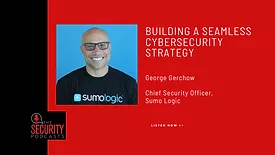Home » Keywords: » strategic planning
Items Tagged with 'strategic planning'
ARTICLES
Integrated Solutions
Strategic safety planning: Staying ahead of business travel threats
Security teams cannot eliminate business travel threats, but their adaptability in the face of an incident can greatly reduce risk.
August 7, 2023
The Security Podcasts
Listen to George Gerchow, CSO at Sumo Logic, discuss how to build a seamless cybersecurity strategy
February 23, 2022
EVENTS
Webinar Sponsored Webinars
9/9/25 to 9/9/26
Contact: Amy Jackson
Actionable Strategies to Mitigate Active Assailant Risk
Sign-up to receive top management & result-driven techniques in the industry.
Join over 20,000+ industry leaders who receive our premium content.
SIGN UP TODAY!Copyright ©2026. All Rights Reserved BNP Media.
Design, CMS, Hosting & Web Development :: ePublishing












